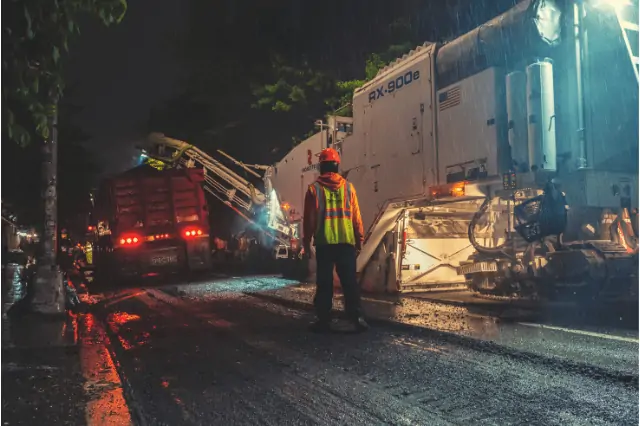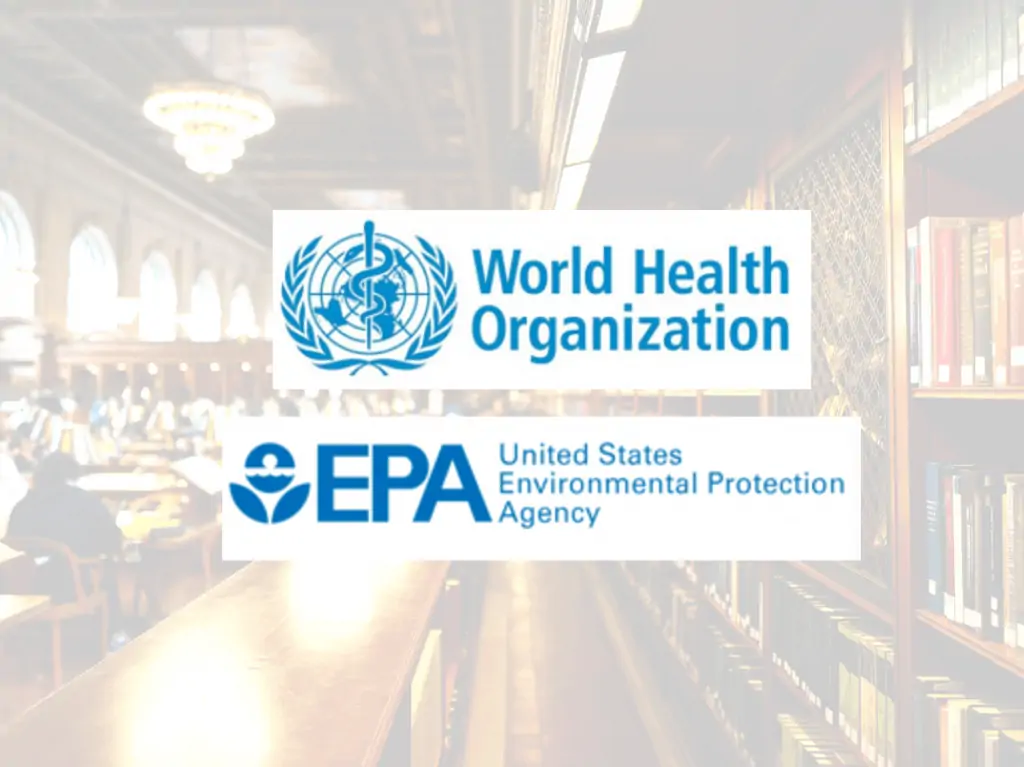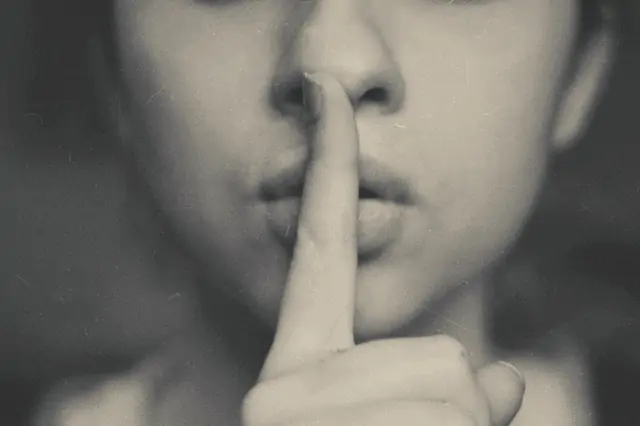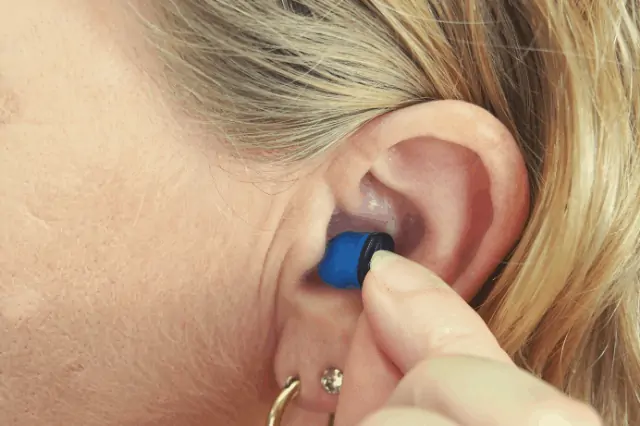If you’ve had to deal with constant traffic noise or barking dogs, you know exactly how exhausting constant noise can be. In fact, loud noise can be detrimental to human health. Did you know every year noise pollution was responsible for around 12,000 premature deaths? It can even affect children’s hearing and learning ability.
So what exactly is noise pollution? Does it affect you and your family? And what can you do to fight it?
What is Noise Pollution?
Noise pollution is a noisy environment that can seriously affect human health. It can be sorted in two categories: industrial workplace noise, and community noise.
Industrial workplace noise has strict regulations about personal protective equipment and noise limits. If you don’t work in a factory, all you need to worry about is community noise.

Community noise include everything that happens inside or outside your home:
- Some noises coming from outside:
- Road, rail, and air traffic: a single car won’t cause a lot of noise on its own, but thousands of cars will. Noise pollution comes from the noise of tires on asphalt and engine noise. It also encompasses honking, excessive braking, and emergency sirens. Railroads and airports are even louder than highways, as anyone who’s lived next to a railroad will tell you.
- Construction and public works: construction sites are loud. They regularly feature noise from jackhammers and industrial machinery. Some projects take months to complete, which adds a lot to noise pollution levels.
- Sporting or music events: sports and music events are loud, often going over 90 dBA. Even if you’re not in the audience, these events contribute to noise pollution levels.
- Some type of noises encountered inside:
- Ventilation systems: your air conditioning gives off a consistent level of background noise. You may become accustomed to it, but it still adds to the level of noise pollution in the area.
- Appliance noise: a banging washing machine or too-loud TV contribute to noise pollution.
What are the Effects of Noise Pollution?
Environmental sound pollution has a wide variety of negative health outcomes.
Disordered Sleep
While you may get accustomed to constant noise, your body doesn’t. This study from A.Muzet, director of the National Centre for Scientific Research in Strasbourg, sums up noise influence. People who sleep in noisy areas move from deep sleep to lighter sleep in response to noise. This means that they spend less time in deep, restful sleep and more time moving between sleep cycles.

This disruption to sleep has its own set of negative health effects. People who sleep poorly have an increased level of stress hormone levels. Cortisol is our natural ringing alarm clock. An increased level of this hormone can be incredibly unhealthy. It’s because it puts the body in a state of constant hyper-awareness.
Disrupted sleep also increases the risk of depression and heart disease.
Stress
Constant noise itself is annoying. Think about the time when a neighbor’s alarm kept going off, or when a dog kept barking for hours. Each of us judges annoyances differently. It means what’s annoying to one may be tolerable to another.
A study published in Science of The Total Environment, highlighted the above. It also showed that regardless of how annoying the sound is, noise links to hypertension. So, even if you’re a Zen master, eventually the constant noise will affect your nerves.
Noise-Induced Hearing Loss (NIHL)
The Environmental Protection Agency (EPA) showed that long-term exposure to noise levels of 75 dBA could result in hearing loss in adults.
NIHL has a huge impact on quality of life. People have to spend more effort to process sound. This effort leads to headaches, fatigue, anger, and depression. People who can’t communicate feel isolated. This results in decreased self-care ability and work tolerance.
Impact on Child Development
Children also suffer from negative health effects due to constant noise. A noisy environment can affect children’s ability to learn and understand speech. The brain might struggle to make sense of the variety of sounds around them.
It was shown that Children with NIHL display behavioral problems and score lower on basic tests.

These adverse health effects can affect every aspect of a child’s life. Which is why different regulatory bodies all over the world have started to take the effects of noise pollution seriously.
How Public Areas Deal with Noise Pollution
Who is Most Affected by Noise Pollution?
People respond differently to the same level of sound pollution. Some groups are most vulnerable to noise pollution. For instance, children spend more time in bed and are more at risk of night noise exposure. This can affect their development and cognitive function.
Since noise affects people differently, it can make regulating noise levels challenging. However, many regulatory bodies have opted to err on the side of caution. Their main solution was prescribing maximum noise levels to protect everyone from noise.
Regulatory Guidelines
The World Health Organization (WHO) and the Environmental Protection Agency (EPA) have both issued guidelines for dealing with sound pollution. The WHO is an informational body helping countries make informed choices about healthcare. On its side, the EPA possesses true regulatory power in the US.

The EPA recommends a 24-hour exposure limit of 55 dBA in all public areas. Night-time hours have a further 10 dBA penalty. The EPA also recommends a second exposure limit of 70 dBA to prevent hearing loss.
The WHO guidelines mirror those of the EPA. It also has separate guidelines for schools and preschools. Background noise shouldn’t be over 35 dBA during teaching sessions. There’s also a similar limit of 55 dBA in playgrounds and the cafeteria.
The WHO also released night-time guidelines. These recommend a limit of 40 dB of outside night noise to prevent adverse health effects.
Unfortunately, these guidelines fail to consider current living circumstances. Since the EPA guidelines from 1974, the US has done little to combat community noise.
Advocacy groups, like Silentcity, Pipedown, and Noise-Free America fight for lower noise pollution. As more advocacy groups bring noise pollution solutions to the government, it’s likely that noise regulations will hopefully change.
Actionable Solutions to Take Care of Your Health
Government can limit noise in industrial workspaces and public areas. It happens to often be not enough. If you live next to a busy road, you know how disruptive constant noise can be. Short of moving to the middle of nowhere, what can you do to combat sound pollution?
Here are some solutions to help you preserve your health.
Understand What ‘Too Loud’ Sounds Like
Most of us get used to loud sounds, especially in workshops, firing ranges, and pubs. If the noise goes over 80 dB, you may risk permanent hearing loss. The problem is that few of us know what ‘over 80 dB’ means, and you’re not going to carry around a sound meter.
The level of dB matters as much as the length of exposure. The table below will give you an idea of why taking a break during a concert can save your ears.
| Everyday Example of Noise | Average Sound Level (dB) | Typical Consequences |
| Quiet talking – road traffic | 0-80 | No damage |
| Gas-powered lawnmower | 80-85 | Hearing damage possible after 2 hours of exposure |
| Motorbike | 95 | Hearing damage possible after 50 minutes of exposure |
| Sporting event | 100 | Hearing loss possible after 15 minutes |
| Maximum volume for TV or stereo | 105-110 | Hearing loss possible in less than 5 minutes |
| Shouting directly in the ear | 110 | Hearing loss possible in less than 2 minutes |
| Standing near a siren | 120 | Pain and injury |
| Fireworks | 140-150 | Pain and injury |
Source: Centers for Disease Control CDC
A good rule of thumb is that if you need to shout over the noise, it’s too loud. Try to limit your interactions in loud places to 30 minutes or under. If you’re using a power tool, invest in ear protection and keep your exposure time short.
Be Mindful of Your Surroundings
A lot of community noise comes from people living their lives. The first thing you should do is conduct an audit of how you contribute to noise pollution. Maybe you use loud power tools or love blasting music from the stereo. Even idling your car, or watching the TV too loud can contribute.

Obsessive, constant dog barking is a major nuisance for the entire neighborhood. It may not be the loudest sound in the area, but it definitely tops the annoyance list. If you’ve got a dog that loves to bark, invest in some training to limit the behavior. Not only will it make the neighborhood more pleasant, but it will bring you closer to your pooch.
If you like to live loud, invest in soundproofing. It’s not only good for keeping sound out, but it will also keep your noise in, to the relief of your community.
Soundproofing
In most cases, you can’t control the environment you live in. If you live in a busy area, you need a solution that doesn’t involve moving.
The WHO recommends bedroom noises to be
- Under 30 dBA for continuous noise
- Under 45 dBA for intermittent sounds
Luckily, there are plenty of noise pollution solutions to seal sound away. Ultimately, those should help move toward a safe, sound-free haven.
Soundproofing is an effective way to seal off a room from noise pollution. It works just as well for indoor noise as it does for outdoor noise.
For interior noise, we recommend focusing on your door and walls. An easy solution is to add a door gasket or door sweep. These devices seal the space between the door and frame, preventing sound from coming in. They also prevent sound from leaving, making it ideal if you’re the noisy one in the home.

If you live in a busy area, you want to block off outdoor sounds. A simple way to do this is with soundproof curtains, that will block the majority of outdoor sounds. You may not create a perfect seal or have perfect silence, but it’s good enough for your health.
Soundproofing has the advantage of being very customizable. Even a small project can make a massive difference to the sound quality in your home. And if you have the money and the time, you can go big and ensure complete silence at all times, no matter what’s going on outside.
Wear Protective Gear
Sometimes, you’re going to put yourself in a situation with plenty of noise. If you’re an avid concert-goer, you probably won’t stop just to save your hearing. An alternative is to use protective earplugs or headphones. Don’t worry about looking silly, chances are the musicians are wearing plugs too!
While earplugs protect your hearing, they also have a great added benefit. Since they block a lot of low-frequency sounds, you’ll hear the music better and enjoy it even more.

All hearing protective devices come with a rating. The Noise Reduction Rating (NRR) shows exactly how protective the earplugs are. It’s a good way to compare products and find one that works for your situation.
Summary
Noise pollution can be as harmful as air pollution. It can cause significant health issues.
While the EU is introducing new regulations for community noise, the US is still far behind. If you live in a large city, you may have to take matters into your own hands. There are plenty of ways that you can protect yourself from sound pollution. Some of the best solutions include ear protection and soundproofing your home.

2 thoughts on “Daily Noise Pollution: Its Effects and What You Need to Know”
Informative article – I plan to link to it from my blog
Hi Dr. Lavine, thank you so much for taking the time to read it.
Your feedback really means a lot 🙂